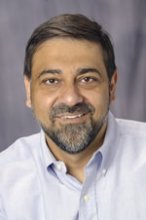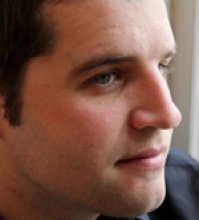With surveillance apparently on the rise and privacy appearing to decline commensurately, it is critical to carefully evaluate the logic behind both state and corporate surveillance. How do we benefit from massive datasets that provide windows into patterns of life — either our own or of those whom we fear? What are the real harms and tradeoffs that arise out of a surveillance-tolerant society? This panel will grapple with the realities of data-enabled surveillance without the hype or moral righteousness that colors the public debates of these topics.
How Surveillants Think
Nils Gilman is executive director of UC Berkeley’s Social Science Matrix. He holds a B.A., M.A., and Ph.D. in history from UC Berkeley. Nils is the author of Mandarins of the Future: Modernization Theory in Cold War America and the founding co-editor of Humanity: An International Journal of Human Rights, Humanitarianism, and Development. Prior to joining Social Science Matrix in September 2013, Gilman was research director at Monitor 360, a San Francisco consultancy that addresses complex and emerging global strategic challenges for governments, multinational businesses, and NGOs. He has also worked at a variety of enterprise software companies, including Salesforce.com, BEA Systems, and Plumtree Software. Gilman has taught and lectured at a wide variety of venues, from Harvard University, Columbia University, and National Defense University to PopTech, the European Futurists Conference, and the Long Now Foundation.
Jesse Goldhammer is a principal at Deloitte who develops transformational innovation programs that help clients to solve vexing public and private sector challenges. Trained in political theory, Goldhammer has a longstanding interest in the genealogy of social, economic, and political power; he has taught in several universities and worked in the information technology sector. His first book, The Headless Republic, examined the role of violence and sacrifice in French intellectual and political life. His most recent book, Deviant Globalization, explores the underlying forces that enable a wide variety of illicit global flows, including drugs, weapons, and toxic waste.
Gilman Louie is a partner of Alsop Louie Partners, a venture capital fund focused on helping entrepreneurs start companies. He is also the founder and former CEO of In-Q-Tel, a strategic venture fund created to help enhance national security by connecting the Central Intelligence Agency and U.S. intelligence community with venture-backed entrepreneurial companies. Previously Louie built a career as a pioneer in the interactive entertainment industry; he designed and developed the Falcon F-16 flight simulator, and licensed Tetris, the world’s most popular computer game, from its developers in the Soviet Union. Louie founded and ran Spectrum HoloByte which was acquired by Hasbro Corporation; he served as chief creative officer of Hasbro Interactive and general manager of the Games.com group before founding In-Q-Tel.
Ejovi Nuwere is the founder of Kaori-san, a services platform that helps startups expand into in foreign markets. Prior to that, Nuwere had an extensive career as a security consultant throughout Asia with the world’s leading security consulting firms, including SecurityLab Technology, which he founded, @Stake, which was acquired by Symantec, and Core Security. In 2005, he was named one of Businessweek’s top 25 young entrepreneurs. Nuwere is the author of Practical Penetration Testing (O’Reilly) and Hacker Cracker (William Morrow/Harper Collins).
Vivek Wadhwa is a fellow at the Arthur & Toni Rembe Rock Center for Corporate Governance, Stanford University; director of research at the Center for Entrepreneurship and Research Commercialization at the Pratt School of Engineering, Duke University; and distinguished fellow at Singularity University. He is author of The Immigrant Exodus: Why America Is Losing the Global Race to Capture Entrepreneurial Talent, which was named by The Economist as a book of the year of 2012. He was named by Foreign Policy magazine as Top 100 Global Thinker in 2012. In 2013, TIME Magazine listed him as one of The 40 Most Influential Minds in Tech. He is an advisor to several governments; mentors entrepreneurs; and is a regular columnist for The Washington Post, Wall Street Journal Accelerators, LinkedIn Influencers blog, Forbes, and the American Society of Engineering Education’s Prism magazine. Prior to joining academia in 2005, Wadhwa founded two software companies.
Growing up in the fens of Cambridge, Pete Warden naturally wanted to see the rest of the world. He started off by camping out in an Alaskan tree house for three months and fell in love with the American wilderness. Warden founded Open Heat Map and formerly worked as a senior engineer at Apple. He is a prolific blogger and the author of O’Reilly’s Big Data Glossary and Data Source Handbook.






